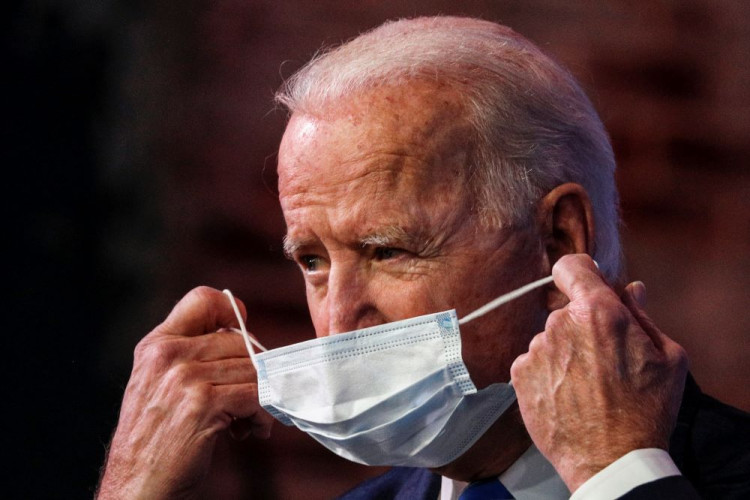President-elect Joe Biden will Friday follow up his $1.9 trillion virus financial aid package with details of money for a national vaccine program, testing, investments for workers to do vaccine outreach and contact tracing, and money for states.
"The vaccines offer so much hope...but the vaccine rollout in the U.S. has been a dismal failure thus far," Biden said adding that Friday he would set out his plan to vaccinate 100 million Americans in 100 days after taking office.
"This will be one of the most challenging operations efforts we've ever undertaken as a nation. We'll have to move heaven and earth to get more people vaccinated."
Pandemic-related shutdowns and restrictions have cost millions of U.S. jobs. The Biden plan - if enacted - would buy more time for the economy to bridge the period until the distribution of vaccines allows for a wider resumption of economic activity.
U.S. equity index futures were little changed on the news.
On Thursday Biden outlined a $1.9 trillion stimulus package proposal late Thursday - saying bold investment was needed to jump-start the economy and accelerate the distribution of vaccines to bring the virus under control.
Biden campaigned last year on a promise to take the pandemic more seriously than President Donald Trump and the package aims to put that into action with resources for the COVID-19 response and economic recovery.
"A crisis of deep human suffering is in plain sight, and there's no time to waste," Biden said. "We have to act and we have to act now."
The package includes $415 billion to bolster the response to the virus and the rollout of COVID-19 vaccines, some $1 trillion in direct relief to households and roughly $440 billion for small businesses and communities particularly hard hit by the pandemic.
Stimulus checks would be issued for $1,400 - on top of the $600 checks delivered by the last congressional legislation. Supplemental unemployment insurance will increase to $400 a week from $300 a week now and will be extended to September.
Biden's plan is meant to kick off his time in office with a large bill that sets his short-term agenda into motion quickly: helping the economy and getting a handle on a virus that has killed more than 385,000 people in the U.S. as of Thursday.
It contrasts with Trump - who spent the last months of his administration seeking to undermine Biden's election victory rather than concentrating on additional coronavirus relief. Trump, who leaves office Wednesday, did support $2,000 payments to Americans, however.
Many Republicans in Congress balked at the price tag for such payments.
Biden will face similar hurdles with his proposals, which come on the heels of a $900 billion aid package Congress passed in December.
But he will be helped by the fact that his fellow Democrats will control both the House and the Senate. Chuck Schumer, who is about to lead a narrow Democratic majority in the U.S. Senate, and House Speaker Nancy Pelosi said late Thursday that Biden's package was "the right approach" and pledged to begin working on legislation.
Transition officials said Biden's plan will be a rescue package that will be followed up with another recovery package in the coming weeks.
The plan would extend moratoriums on foreclosures and evictions until September and include funding for rental and utility assistance.
The president-elect also called on Congress to increase the minimum wage to $15 an hour, and the package will include assistance to fight hunger.
"I know what I just described does not come cheaply, but failure to do so will cost us dearly," Biden said, adding that economists, financial institutions and Wall Street banks supported the need for stimulus.
"If we invest now - boldly, smartly, with unwavering focus on American workers and families - we will strengthen our economy, reduce inequality and put our nation's long-term finances on the most sustainable course."





